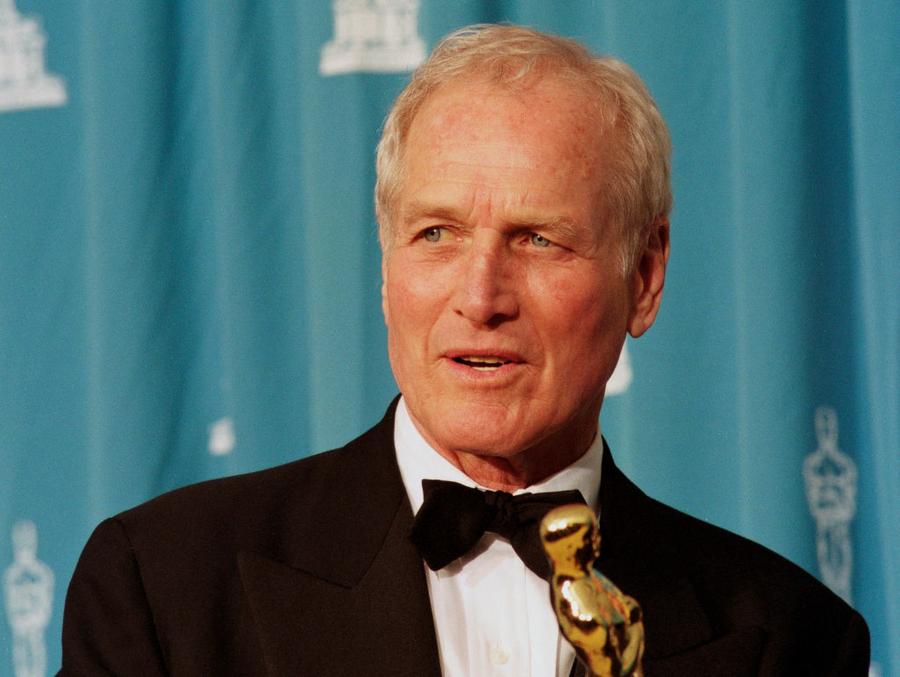Paul Newman was more than just one of Hollywood's most beloved leading men. Over the course of five decades, he built a career filled with iconic roles, critical acclaim, and a trophy case that included an Oscar, a BAFTA, multiple Golden Globes, and an Emmy. But while many stars cement their legacy through film, Newman created something even more enduring: a charitable empire built from a bottle of homemade salad dressing.
And it all happened quite surreptitiously — after a party, at the suggestion of a friend who loved his salad dressing. What began as a holiday kitchen experiment turned into something far bigger than Newman or anyone around him expected. And while you might expect a cause-driven brand to donate a portion of profits — perhaps 20% or 30% — that wasn't the approach Newman forged with his company. Instead, he insisted that 100% of after-tax profits go directly to charity.
From there, a charity empire was born. Today, Newman's Own has donated more than $600 million to causes around the globe, funding everything from children's camps to nutrition programs. It's a model that has inspired generations of socially conscious entrepreneurs, proving that generosity and good business can go hand in hand.

Bob Riha, Jr./Getty Images
From Actor To Icon
Paul Newman was one of the most respected actors of his generation. After serving in the military, he graduated from Kenyon College with a degree in Economics and later attended the Yale School of Drama and the Actors Studio in New York. He made his Broadway debut in 1953 with "Picnic" and steadily built his reputation on stage and screen.
Over a career spanning more than fifty years, Newman became a household name with films like "The Hustler," "Cool Hand Luke," "Butch Cassidy and the Sundance Kid," and "The Verdict." Along the way he earned 10 Golden Globe nominations, five BAFTA nods, six Academy Award nominations, and ultimately took home an Oscar. Outside of acting, he was a director, producer, and even a professional race car driver, later earning induction into the SCCA Hall of Fame.
His friendship and screen partnership with Robert Redford — particularly in "Butch Cassidy and the Sundance Kid" and "The Sting" — remains one of Hollywood's most legendary pairings. Like Newman, Redford later devoted much of his career to philanthropy and institution-building, founding the Sundance Institute. Both men showed how movie stars could leverage fame to create something lasting beyond the screen.
A Homemade Gift That Got Out Of Hand
In the early 1980s, when Newman wasn't busy racking up award nominations, he was often in his kitchen making salad dressing. Known for his generosity, he would bottle it up and give it to friends and family during the holidays. After one winter, demand exploded. Recipients raved about the dressing, begged for more, and spread the word until strangers were asking for bottles.
Recognizing the potential, Newman partnered with his friend, writer A.E. Hotchner, to bring the product to market. In 1982, they officially launched Newman's Own Salad Dressing. The first year alone, the company earned $300,000 in profits.
Giving It All Away
Neither Newman nor Hotchner needed the money — both had thriving careers. Instead of pocketing the profits, they made a bold choice: every dime after expenses would go to charity. That principle became the backbone of the company. As Newman's Own grew beyond salad dressing into pasta sauce, lemonade, popcorn, cookies, salsa, frozen meals, and even pet food, the promise remained the same. All profits would be donated.
In 1988, Newman expanded his impact by founding The Hole in the Wall Gang Camp, a program for seriously ill children and their families. The camp, along with its satellite programs, has been supported for decades through the company's profits.
A Legacy Tested
Within its first decade, Newman's Own had donated $50 million. By the time Newman passed away in 2008, the company had already changed the way people thought about philanthropy and business. Today, lifetime donations exceed $600 million, and the brand continues to support causes focused on children's health and nutrition.
But Newman's philanthropic empire has not been without controversy. In 2022, two of his daughters — Elinor "Nell" Newman and Susan Newman — filed a lawsuit against the Newman's Own Foundation, claiming its leaders had strayed from their father's wishes. The daughters argued that annual charitable allotments they once controlled had been cut in half, and they accused the board of mismanaging funds and drifting from Newman's broader priorities, such as arts and environmental causes. The foundation, with assets of about $234 million, called the lawsuit meritless and insisted it remained true to Newman's spirit by focusing on children.
Despite these tensions, Newman's vision remains one of the most extraordinary philanthropic experiments in modern history. What began with one man's homemade recipe turned into a movement — a reminder that even a bottle of salad dressing can change the world when fueled by generosity.
"I just happen to think that in life we need to be a little like the farmer, who puts back into the soil what he takes out." — Paul Newman (1925–2008)
/2023/03/GettyImages-88581879.jpg)
/2024/12/paul-newman.jpg)
/2020/08/robert-redford-1.jpg)
/2015/05/Jack-Lord-1.jpg)
/2014/02/Joanne-Woodward.jpg)
/2014/04/CNW-Woman-5.png)
/2020/04/Megan-Fox.jpg)
/2020/01/lopez3.jpg)
/2018/03/GettyImages-821622848.jpg)
/2020/02/Angelina-Jolie.png)
/2019/04/rr.jpg)
/2020/06/taylor.png)
:strip_exif()/2015/09/GettyImages-476575299.jpg)
/2009/09/Brad-Pitt.jpg)
/2017/02/GettyImages-528215436.jpg)
/2019/10/denzel-washington-1.jpg)
/2009/09/Cristiano-Ronaldo.jpg)
/2009/11/George-Clooney.jpg)
/2019/11/GettyImages-1094653148.jpg)
:strip_exif()/2009/09/P-Diddy.jpg)
/2009/09/Jennifer-Aniston.jpg)